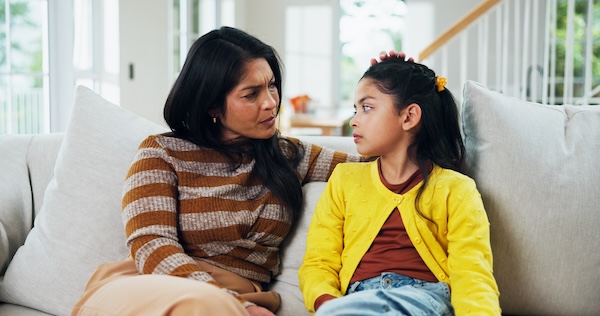Drag
Select
Call Now
7 ways to cope with loneliness as a young adult
Parent
Teen

Did you know that young adults are feeling lonelier than ever? In fact, the Surgeon General has declared that our country is currently experiencing an “epidemic of loneliness and isolation.”
So, if you’re feeling lonely and could use some support, you’re far from alone and you’ve come to the right place. It’s important to first level set that we’re all lonely sometimes — it’s very normal! People of all ages require connection to thrive, and being a part of a strong support network can make a huge difference in how we feel.
That’s why we’re here to help you better understand and reflect on what loneliness means to you and how you can begin to take small steps toward connection.
Why are so many young people feeling so lonely?
Despite being more connected than ever thanks to technology, young people like you are feeling more alone than ever for many reasons, including:
- You’re still growing and learning. As a young person, you are still learning the coping mechanisms necessary to navigate loneliness. And, the part of your brain that regulates emotions, like loneliness, is likely still maturing, so you may feel the impact of loneliness more intensely than others.
- Social media intensifies FOMO (fear of missing out). You know that feeling when you’re scrolling through your social media feed and see everyone at a party without you? Yep, us too. That feeling stinks, and it’s super prevalent when we are constantly bombarded with highly filtered images of everyone else looking like they’re having the time of their lives (remember, these images aren’t a true representation of real life, but we’ll get to more on that later!).
- Establishing identity. Whether you’re deciding what career path to take or what kind of music you like listening to, understanding who you are and where you belong in the world can be stressful and confusing. This can lead to you feeling misunderstood by those around you. During this pivotal time in life, you may find yourself ending relationships or pulling away from family members who don’t make you feel supported.
- Experiencing loss. Maybe you’ve gone through a break-up, lost a pet, moved to a new school, or changed jobs. Navigating grief is difficult at any point in life, especially when you lose a strong attachment to someone or something you’ve cared deeply about.
What’s the difference between feeling lonely and being alone?
It’s important to understand that loneliness doesn’t necessarily mean being alone. You may find yourself at a party in a room full of people and still feel incredibly alone. Loneliness is an individual experience and may leave you feeling detached, isolated, or alienated from others — even if they are physically in the same room as you.
{{journyngadlt="/blogcomponents"}}
Some people enjoy spending time alone and find it helps them to relax and recharge. But experiencing loneliness can happen when you feel like you’re not understood, valued, or seen by those around you or when you don’t have a sufficient support system in your life.
How loneliness impacts how we feel
Loneliness doesn’t just make us feel bad, it can actually make us sick. One study found that loneliness actually has the same detrimental effect as smoking 15 cigarettes a day. Experiencing loneliness raises our levels of stress and inflammation and has been shown to lower immunity and disrupt sleep.
It’s likely no surprise that loneliness is closely linked to depression and leaves people feeling less hopeful and unsatisfied with life. Loneliness can also increase alcohol and substance abuse and can result in a higher risk of suicide or self-harm.
How to better understand your loneliness
Let’s take some time to reflect on what's triggering these feelings. One of the first steps to coping with loneliness is better understanding your experience.
Grab a journal and take a few minutes to write about a time when you’ve felt lonely. What was the circumstance, and what feelings did it bring up for you? Are you lacking close friendships? Are you having difficulty fitting in? Or are you feeling misunderstood? Did you just go through a major life change? What thoughts are you having surrounding loneliness, and are they actually true?
By taking time and space to understand where your personal loneliness stems, you can more easily find ways to cope and get the support that you deserve.
7 ways to feel less lonely
- Start with a small chat. You don’t need to immediately pack your social calendar to ease loneliness. Try having a casual conversation with someone that you see during your day like a neighbor, store clerk, or a co-worker. It may feel like no big deal, but these small interactions can lead to deeper connections over time.
- Show yourself some compassion. Try to be gentle and kind to yourself when you’re feeling lonely. What would you say to a dear friend who was feeling lonely or isolated? Try writing a letter to yourself from this caring voice or tap into a few reassuring affirmations you can use, like “I deserve meaningful connections” or “I am worthy of feeling loved.” Remind yourself of your strengths and accomplishments and write them down if it helps. We know it might feel awkward at first, but the more you can show up for yourself with kindness, the better you’ll feel.
- Set limits on social media. Our phones are like little slot machines, designed to keep us addicted and coming back for more. By limiting your time on social media, you’ll likely feel less lonely. Try creating healthy morning and evening routines where you put your phone away so that it’s not the first thing you turn to when you wake up and before you go to bed. You can also set app limits on your phone so that you don’t get stuck scrolling the day away. We’re all about moderation when it comes to screens — they’re okay and necessary sometimes, but not a healthy replacement for doing things you love or connecting with people in real-time. When you’re spending time with others, try to have “no screen” experiences as much as possible.
- Get a pet. Furry (or scaly!) companions can reduce stress and anxiety while also easing loneliness by creating a release of oxytocin, the feel-good chemical in our brains. Caring for a pet can help you feel emotionally supported and foster a meaningful sense of connection. If you’re not able to have a pet right now, consider volunteering with a rescue organization or offering to pet sit or walk a dog for a loved one.
- Volunteer in your community. Humans are pack animals and we crave being a part of a group. Volunteering is a great way to have meaningful social interactions and feel as if you are a part of something bigger than yourself. And giving back actually releases oxytocin in the brain. Is there a non-profit in your neighborhood that you could reach out to? Maybe there’s a senior citizen who could use some company or a little help around the house? Could you volunteer in a community garden? Think about the issues that matter to you and see how you can make a difference.
- Build healthy habits. We know it sounds strange, but taking care of yourself can actually help you to feel less lonely. Getting enough sleep, moving your body, and eating nutritious foods can help you to feel better and make stronger connections to the people around you. Plus, going to exercise classes or a local park are great ways to build more social interactions into your days.
- Get creative. When you have alone time, try tapping into your creative side by reading a book, listening to music, painting, writing, or making any kind of art. Getting into a creative flow state can help you cope with painful feelings of loneliness, boost your mood, and become more connected to yourself.
Building your support network
One of the best ways to alleviate loneliness is to strengthen existing relationships. Sometimes, when we’re feeling down, we withdraw from others and become more isolated. Maybe you’re feeling rejected, ignored, or judged by those around you and it’s caused you to pull back.
That’s totally understandable, but having people around to lift you up can make things so much better. Let’s look at how you can begin to rebuild a support system that works for you.
A social support network or system refers to the people close to you and with whom you share important things— like time, information, and memories. Your network can include friends, family, co-workers, classmates, neighbors, colleagues, and anyone else you feel especially connected to. Oh yeah, did we mention fur babies too? They are wonderful forms of unconditional support.
Think about your emotional, tangible, and social needs. Who can help you to manage your emotions when you’re feeling lonely or stressed? Who can help you with tangible tasks like moving into a new apartment or financial assistance? Who can fulfill your social needs like going out to dinner with friends or connecting over the phone when you’re having a tough day?
The stronger our support system, the better we can navigate difficult situations. Try reaching out to those who can support you on a regular basis. It can be as simple as sending a text asking how a friend is doing. Can you ask your boss to mentor you? A classmate to grab a cup of coffee? Or your parents to help you navigate a big financial decision? Make it a priority to nurture your existing relationships, even when other areas of your life are busy.
If feelings of loneliness are persistent and begin to interfere with your daily life, you may benefit from professional support. There’s no shame in seeking help. Remember that the team at Bend is here to help you navigate difficult emotions like loneliness, equipping you with evidence-based tools to help you feel better.
If you or someone you know is in crisis, call 911, go to the nearest emergency room, or reach out to the following national resources. You are never alone. Dial 9-8-8 or call 1-800-273-TALK (8255) to reach the 24-hour National Suicide Prevention Lifeline. Text 741741 to reach the Crisis Text Line.




